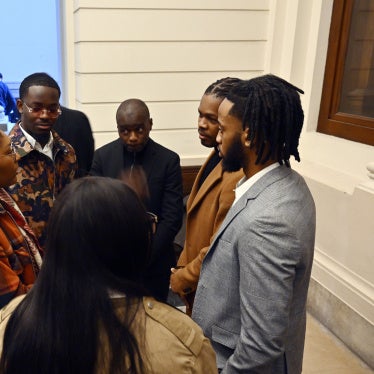President Sarkozy of France has reignited the debate about how Muslim women in Europe should dress by calling for a ban on clothing that, as he puts it, imprisons women and undermines their dignity. But in this burqa debate the voices of Muslim women are strangely absent.
For many men and women, the burqa, the niqab, or any clothing that covers the whole female body including the face, is a powerful symbol of the oppression and subjugation of Muslim women. It is an obvious reminder of how the Taliban, who required women to wear the burqa, systematically abused the fundamental rights and freedoms of Afghan women, leaving them with the lowest life expectancy in the region and highest rates of maternal death.
To its critics, the burqa has also become a symbol of Islamist radicalism and even terrorism and is increasingly being seen as a threat to efforts to integrate Muslim migrants into British and European society. Video footage apparently showing one of the failed July 21 2005 London bombers wearing a niqab as a disguise has reinforced the notion that the veiling of the face is inherently suspicious and implanted the fear that it may even be a threat to national security.
There's no doubt that religion and tradition can and do have a negative impact on women's rights across the board. According to the World Health Organization, approximately 68,000 women around the world die from unsafe abortions every year. Yet the Catholic church continues to oppose the legalization that would reduce the number of such abortions.
Violence against women is tolerated in the name of tradition all over the world. Women's oppression is universal. Those who want to help address this sorry state of affairs should start not by telling Muslim women how to dress, but by tackling the root causes of this oppression both at home and abroad: discrimination, lack of access to services, and unequal economic opportunities.
A legal ban in Europe on the wearing of the burqa in public life would be just as much a violation of the rights of those women who wish to wear it as is the forcing of the veil on those women who do not wish to wear it in, for example, Iran or Saudi Arabia. Muslim women should have the right to move around dressed as they choose, to make decisions about their lives and religion, whether we understand or support those choices or not.
The argument that "the burqa oppresses all women" and therefore should be banned by the state implies that it is up to the state to regulate and limit a woman's choices about how she expresses her religious belief through her outward appearance. This is an outrageous interference that so far from protecting Muslim women, which is presumably the intention, actually further undermines their ability and their right to choose how to lead their lives and how to present themselves in public.
Human Rights Watch recently conducted research in Germany, where a number of states have banned the wearing of the headscarf, a far less severe form of covering the body, for women teachers.
Fathima, a young teacher, described her choice to wear a headscarf to school: "They should ask our colleagues, directors, school inspectors, the parents, the pupils what kind of person we are. All of them have experienced me and know me so well, that they can attest for sure that I am not oppressed and that I do not wear the headscarf because of oppression."
She argues powerfully that the scarf cannot simply be written off as a symbol of oppression, and that for her wearing the headscarf represents her choice to practice her religion while still participating actively in Germany society.
There is no doubt that many Muslim women are forced to wear the burqa or other forms of veil and are unable to make decisions about the most fundamental aspects of their lives. But there is equally little doubt that many other Muslim women have made a free and informed decision to wear such coverings, and value the space to practice their religion in public. Banning the burqa fundamentally undermines their rights and perhaps most importantly does not provide any meaningful assistance to those women who are coerced and forced to cover their bodies and faces.
Politicians like Sarkozy who claim to stand up for women's rights must look beyond what women wear. Banning the burqa will not make it go away; it will only force the women who wear it, whether by choice or under coercion, to drop out of sight.







